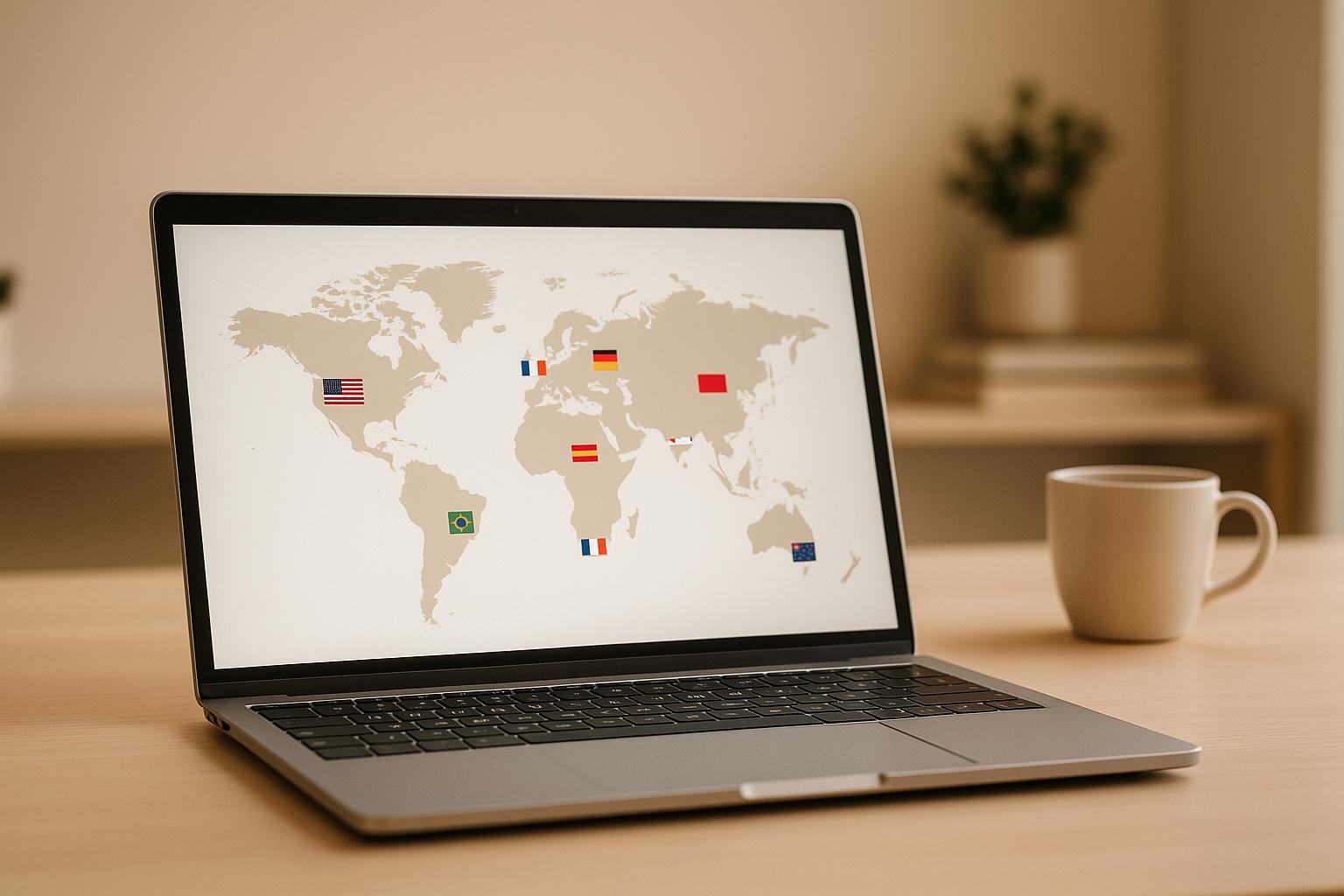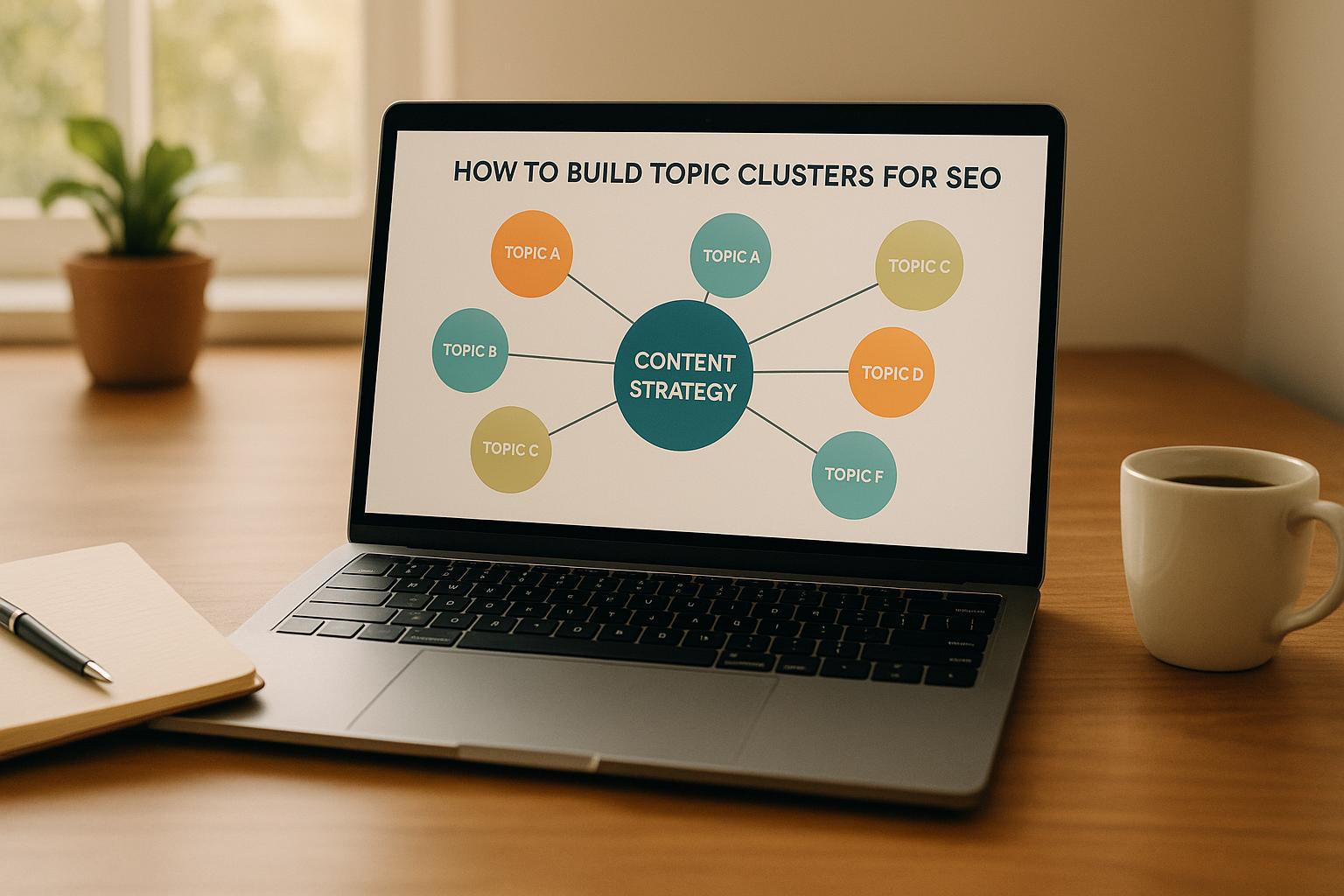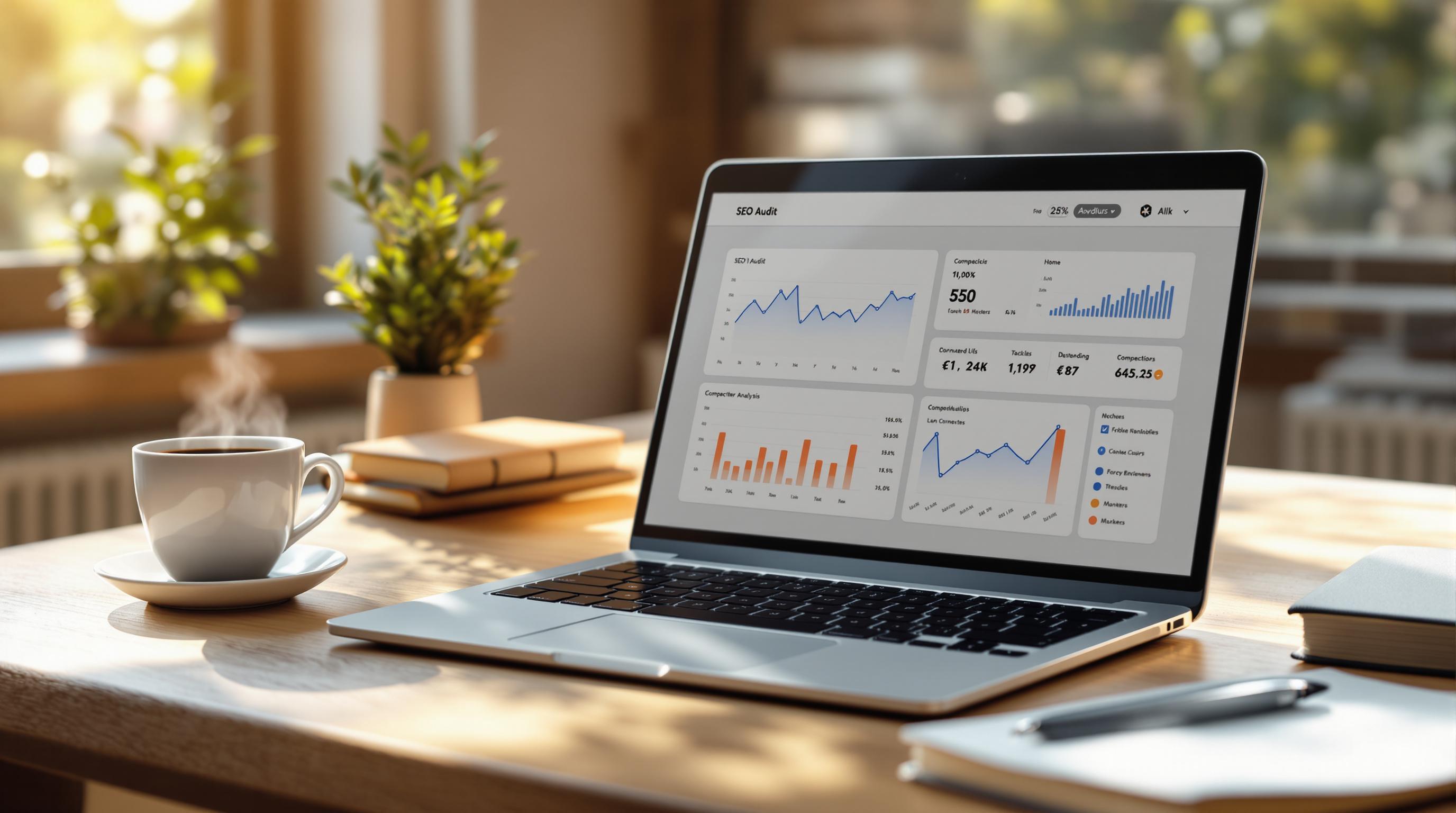Social media links don’t directly improve your SEO rankings, but they create opportunities for indirect benefits. Here’s how:
- Google’s stance: Social signals like likes, shares, and comments don’t directly influence rankings. Most social media links are “no-follow,” meaning they don’t pass link authority.
- Visibility boost: Social media helps your content reach wider audiences, increasing the chances of earning organic backlinks from bloggers, journalists, or industry leaders.
- User engagement metrics: Traffic from social platforms can improve metrics like bounce rate, dwell time, and pages per session, which search engines monitor.
- Faster indexing: Sharing content on platforms like X or LinkedIn helps search engines discover and index your pages quicker.
Key Takeaways:
- Focus on creating shareable, high-quality content to maximize social reach.
- Optimize your social media profiles with consistent branding and clear calls-to-action.
- Track metrics like referral traffic, branded search volume, and backlinks generated through social media efforts.
While social media links don’t directly influence rankings, they play a critical role in driving traffic, improving engagement, and building authority, all of which support long-term SEO success.
The Impact of Social Media on SEO - SEO Podcast
Indirect Benefits: How Social Media Links Support SEO
Social media links might not offer direct SEO advantages, but their indirect impact can significantly enhance your overall SEO strategy. These links create ripple effects that amplify your brand's visibility, credibility, and online performance.
Boosting Brand Visibility and Authority
Social media platforms like Facebook, LinkedIn, and X help extend your brand's reach far beyond your immediate audience. When users share your content, it gets exposed to a broader audience, increasing brand recognition and reinforcing your authority in your field.
This visibility isn't just about numbers - it sends trust signals to search engines. Research shows that brands with active social media engagement often experience a 22% boost in search engine visibility. Moreover, when your content reaches industry leaders, journalists, or bloggers, it opens the door for organic backlinks. These links, earned through credibility and relevance, can improve your rankings on search engine results pages.
Sharing high-quality, industry-relevant content regularly on social media also positions your brand as an expert in your niche. This reputation encourages other sites to link to your content, further strengthening your SEO. Ultimately, greater credibility leads to increased traffic and better search engine performance.
Driving Traffic and Enhancing User Engagement Metrics
Social media referral traffic can improve critical user behavior metrics like bounce rates, dwell time, and pages per session. Engaged users who click on your content from social platforms tend to spend more time exploring your site, signaling to search engines that your content offers value.
Websites with an active social presence typically see higher organic traffic. This traffic isn’t just about volume - it’s about quality. Visitors from social media are already interested in your brand, making them more likely to engage deeply with your content. For instance, pages ranking on Google’s first page often boast an average dwell time of over 3 minutes. When social media brings in users who stick around, it reinforces the idea that your content is worth ranking.
These visitors don’t just stay longer - they’re also more likely to browse multiple pages, boosting your pages-per-session metric. And when they return to your site in the future, search engines take note of these repeat visits as a sign of user satisfaction. Together, these behaviors enhance your overall SEO performance.
Generating Backlink Opportunities Through Social Engagement
Social media engagement can indirectly lead to valuable backlinks. When your content attracts likes, shares, and comments, it gains momentum, increasing the likelihood that it will be discovered by bloggers, journalists, or website owners. A 2018 Hootsuite study revealed that articles with high social shares saw a 22% improvement in SEO results.
The extended reach of social media keeps your content circulating long after its initial post. This is especially true for educational or newsworthy pieces, which often catch the attention of industry publications. These organic backlinks from authoritative sources carry far more weight than direct social media links.
Additionally, social listening can uncover opportunities for backlinks. If people mention your content on social platforms without linking to it, you can reach out and encourage them to include a link. This simple step turns mentions into actionable SEO wins.
Social media visitors also tend to convert at higher rates, which sends positive signals to search engines. These conversions, coupled with the engagement-driven backlinks, create a feedback loop that strengthens your site’s SEO performance over time.
How Social Media Links Influence Search Performance
Social media plays a notable role in shaping search performance, though not in the way many might think. While social signals - like likes or shares - don’t directly influence rankings, the ripple effects they create can have a measurable impact. Let’s break down how these pathways work and why they matter for modern SEO.
Content Discovery and Indexing
Social media platforms act as powerful distribution channels, helping search engines find and index new content faster. For example, when you share a blog post or a webpage on platforms like Twitter, Facebook, or LinkedIn, search engine crawlers often follow those links shortly after they’re posted. This is particularly useful for time-sensitive content like breaking news or product launches, which benefit from quick indexing.
Beyond speed, user engagement - such as comments, shares, and reactions - provides search engines with additional context about your content’s relevance. This helps search engines better categorize and index your pages. While faster indexing doesn’t guarantee higher rankings, it does increase visibility, setting the stage for broader engagement that feeds into your overall SEO strategy.
Connection Between Social Shares and Rankings
The relationship between social shares and search rankings is indirect but impactful. When content resonates with audiences and garners significant shares, it often attracts backlinks and mentions organically. These backlinks are a key factor in maintaining search visibility over time.
For evergreen content - articles or resources that remain relevant long after publication - sustained social activity can keep the content in front of new audiences, ensuring continued engagement. Experts generally agree that it’s the quality of the content that drives this success, rather than the social signals themselves. However, the amplification provided by social platforms is undeniable.
Referral Traffic and SEO Signals
Social media doesn’t just drive traffic - it brings in highly engaged users. When visitors click through from social platforms to your website, their behavior - such as time spent on your site, the number of pages they view, and whether they return - can influence key user metrics that search engines monitor.
This type of referral traffic often shows strong engagement because users arrive with a clear interest sparked by compelling content. These behaviors, like longer session durations and lower bounce rates, signal to search engines that your site offers value. Plus, visitors from social media are more likely to share, bookmark, or subscribe, further reinforcing the content’s relevance and authority. Over time, this steady engagement helps build your site’s topical authority, strengthening its overall SEO performance.
sbb-itb-5be333f
How to Use Social Media Links for Better SEO
Social media can be a powerful ally in boosting your SEO efforts, even if the benefits are indirect. By strategically managing your social media presence, you can drive more engagement and amplify your brand's online visibility. The first step? Make sure your social media profiles are working for you.
Optimize Social Media Profiles
Your social media profiles are often the first impression of your brand, so make them count. Fill out all profile details completely - this includes your "About" section, contact information, hours of operation, and location. Don’t forget to include your website URL. These details not only improve your branded search visibility but also help your business appear in Google’s knowledge panels. Keep your branding consistent across platforms by using the same name, logo, color scheme, and messaging. This consistency helps search engines connect the dots between your social media and your website.
Create Shareable and Engaging Content
Content that gets shared is content that gets noticed. Focus on creating posts that resonate with your audience - whether that’s through humor, education, or storytelling. The more engaging your content, the more likely people are to visit your profile and share your posts. This kind of organic interaction boosts brand awareness and reinforces your credibility, which indirectly supports your SEO goals.
Use Tools and Services for Social Media SEO
Once you’ve nailed down your content, streamline your workflow with the right tools. Social media management platforms can help you schedule posts, monitor engagement, and track performance metrics. Tools for creating visuals and videos make it easier to produce eye-catching content, while analytics platforms let you measure how your social efforts impact website traffic. Need help finding the right tools? Check out the Top SEO Marketing Directory for a curated list of resources to enhance your social media optimization strategy.
Direct vs. Indirect Effects of Social Media Links: A Comparison
When it comes to SEO, it's helpful to break down the impact of social media links into two categories: direct and indirect effects. While Google has made it clear that social signals don’t directly influence rankings, much of the confusion arises from mistaking correlation for causation.
Direct effects assume that links from social media carry the same weight as traditional backlinks. But that’s not the case. Social platforms are rarely crawled consistently by Google, and most social media links come with a "nofollow" tag, which prevents them from passing any link authority.
Indirect effects, on the other hand, are where social media truly plays a role in SEO. It works like a domino effect: social activity increases visibility, which drives traffic, improves user engagement, and eventually leads to natural backlinks. These indirect benefits don’t happen overnight - they take time to build but can have a lasting impact on your SEO performance.
While direct effects offer no immediate ranking boost, indirect benefits unfold gradually as your brand gains visibility and your content reaches new audiences.
Comparison Table: Direct vs. Indirect Effects
| Aspect | Direct Effects | Indirect Effects |
|---|---|---|
| Link Authority | No link authority passed | Brand mentions can lead to natural backlinks |
| Ranking Impact | No immediate ranking improvement | Gradual gains through traffic and engagement |
| Google's Use | Social signals not used as direct ranking factors | User behavior metrics from social traffic matter |
| Timeframe | N/A | 3–6 months for visible SEO benefits |
| Measurability | Not measurable in SEO tools | Trackable via analytics and referral traffic |
| Content Discovery | Limited crawling of social platforms | Social shares help content get indexed faster |
| Brand Visibility | No direct boost in search visibility | Increases branded search volume and recognition |
| Traffic Generation | Doesn't contribute to organic search traffic | Social referrals improve overall site metrics |
The real power of social media in SEO lies in its ability to extend your content’s reach. When your posts resonate, they can spark interest among journalists, bloggers, and potential customers. This can lead to backlinks, branded searches, and more organic traffic over time. Even though social media doesn’t directly influence rankings, these indirect effects make it a key part of any SEO strategy, paving the way for actionable steps in the future.
Conclusion: Getting the Most SEO Value from Social Media Links
Following the principles we’ve outlined, you can amplify your SEO strategy through social media. While social media links won’t deliver instant results, they create a ripple effect that strengthens your overall online presence. Think of social media as an amplifier rather than a direct ranking factor. By sharing high-quality content on these platforms, you open pathways that lead to real SEO benefits.
This understanding helps you position social media as a core part of your broader digital marketing strategy. When your social posts increase brand visibility, they lead to more branded searches. Increased engagement drives traffic to your website, improving user behavior metrics that search engines value. On top of that, social media can help your content reach journalists, bloggers, and industry influencers who might naturally link back to your site.
Patience is key. While social media can help your content get indexed faster, the broader SEO benefits - like improved authority and visibility - take time, often 3-6 months. Abandoning social efforts too early means missing out on these long-term gains.
The indirect SEO benefits of social media build a foundation of brand authority. Unlike strategies that chase algorithm changes, genuine social engagement creates lasting recognition and credibility, helping your search performance for years to come.
Key Takeaways
Here are some actionable steps to keep in mind:
- Focus on quality over quantity. A single, highly engaging post that gets shared widely delivers far more SEO value than a flood of unnoticed content.
- Fully optimize your social media profiles. Treat them as extensions of your website by maintaining consistent branding and including clear calls-to-action.
- Track meaningful metrics. Instead of fixating on follower counts, monitor referral traffic from social platforms, increases in branded search volume, and the quality of backlinks generated through social media exposure. These metrics provide a clearer picture of your social media’s contribution to SEO.
- Prioritize consistency over perfection. Regular posting and authentic engagement with your audience build the sustained visibility that translates into SEO benefits over time.
For businesses serious about improving their SEO through social media, accessing expert tools and resources can make a big difference. The Top SEO Marketing Directory offers curated solutions to help you align your social media efforts with measurable SEO outcomes.
FAQs
Can social media activity help improve SEO rankings even if the links are 'no-follow'?
Yes, your activity on social media can have an indirect impact on SEO rankings, even if the links you share are marked as 'no-follow.' When you actively engage on social platforms, your content gains more visibility, which can drive additional traffic to your website and strengthen brand recognition. This increased exposure often leads to more people sharing your content, potentially earning you natural backlinks from other websites.
Although 'no-follow' links don’t directly pass link equity, the visibility and engagement they create can boost your website’s authority and relevance in search engines over time. By consistently sharing high-quality, engaging content on social media, you can tap into these indirect SEO perks and expand your online presence.
How can I create shareable content that indirectly boosts my SEO rankings?
To make content that people want to share - and that can indirectly help with SEO - focus on connecting with your audience. Think about what they care about, what challenges they face, or what questions they need answered. Then, deliver that information in a way that grabs attention. Use catchy headlines, eye-catching visuals like high-quality images, or even infographics to keep things interesting.
It also helps to stay relevant by weaving in trending topics or timely issues. And don’t underestimate the power of emotion - whether it’s humor, inspiration, or something relatable, tapping into feelings can make your content stick. The more your audience shares your content, the better your chances of earning backlinks and boosting your search engine visibility naturally over time.
How long does it take to see SEO benefits from social media, and what are the key success metrics to track?
SEO benefits from social media activities often take around 3 to 6 months to become visible. While some highly refined campaigns might deliver results faster, patience is essential. The timeline depends on factors like the quality of your content, how actively your audience engages, and the consistency of your efforts.
To gauge progress, keep an eye on metrics like referral traffic, engagement rates, reach, impressions, and click-through rates (CTR). These indicators can reveal how well your social media strategy aligns with your SEO goals, such as increasing traffic and improving search visibility.


